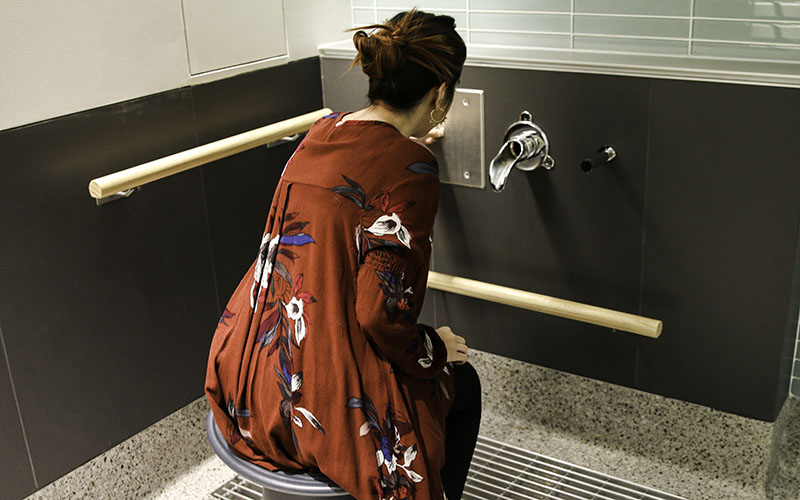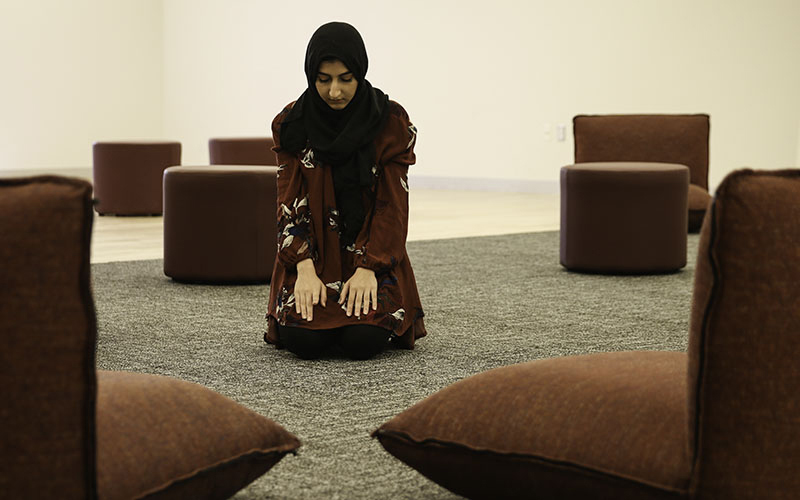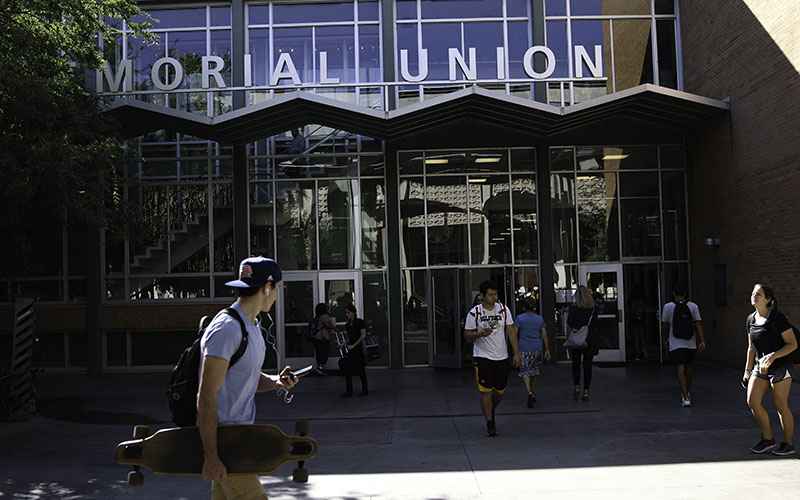TEMPE – Arizona State University recently added an interfaith reflection room and ablution rooms to its Memorial Union to accommodate students who want to practice their religious beliefs.
Muslim students had asked for a place to cleanse themselves before prayer.
“What the students desire is really the driver for this project and so it’s paid for by the students, for the students,” said Bruce Nevel, chief facilities officer at ASU. “It’s a very diverse student body that we have, and so there is a requirement or desire for these ablution rooms.”

Arizona State University student, Mahleej Zara, cleanses in one of the new ablution rooms at the university’s Memorial Union in Tempe. (Photo by Michelle Minahen/Cronkite News)
People use ablution rooms for ritual purification, also known as Wudu. It involves cleansing the head, face, arms, hands and feet.
Many religions practice some form of ablution. Baptism and foot washing are considered forms of ablution in Christianity. However, Muslims wash themselves each time before formal prayer.
“It’s important to have a place like that. It keeps you more clean. There’s no water spilling anywhere,” said Mahleej Zara, a member of the Muslim student association at ASU. “It’s important and as well to acknowledge the fact that students need a place like that.”
The additions were part of a $10 million upgrade to the facilities. Other renovations included new pool tables, dining areas and better accessibility.
“ASU is a very inclusive university, and so we’ve got a lot of faiths represented across the student body,” Nevel said. “It’s important to recognize that and to be sensitive to that and appreciate their desires.”
The private rooms include a place to sit, running water, a hand-washing station and paper towels.
Before ASU installed the rooms, Zara said she would have to clean herself in the bathroom, sometimes creating an awkward situation.
“You have to wash your feet and stuff like that so you can’t just be doing that in a general bathroom,” Zara said. “That’s what we mostly do or what we had to do before these rooms, and people will give you weird looks if you have your bare foot in the sink.”
Muslims makes up about 1 percent of Arizona’s population, according to a Pew Research Center study.

Mahleej Zara adjusts her scarf in the Interfaith Reflection Room at Arizona State University’s Memorial Union in Tempe. (Photo by Michelle Minahen/Cronkite News)
Zara said the fact that ASU recognizes Muslims on campus makes her feel valued.
“ASU is recognizing that there’s Muslim students on campus, and they need a place like this, and that makes you feel important. That makes you feel like, ‘Oh, they care,'” Zara said. “They actually notice that we need a place to pray and a place to make Wudu.”
The University of Miami, Oregon State University and Ohio State University have also added these rooms.

